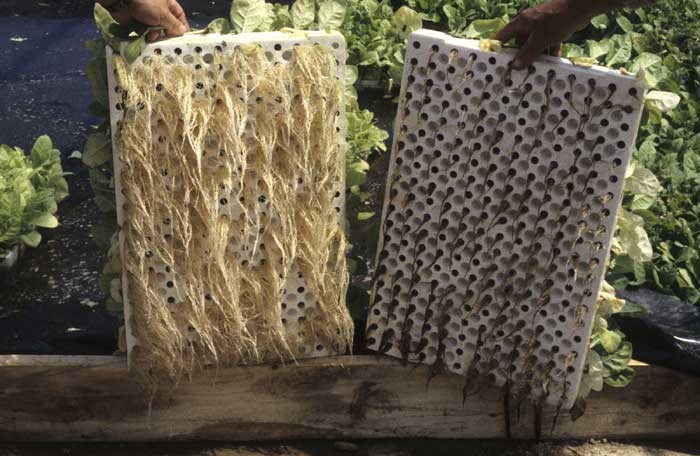Detecting Neopestalotiopsis sp. in Strawberries: From Traditional to Advanced qPCR Diagnostics Introduction Neopestalotiopsis, strawberries, and qPCR are words we can find together, in the same sentence, more often than ever before. Growers worldwide are increasingly concerned about Neopestalotiopsis, a type of fungi that includes both harmless and highly aggressive species. The emergence of a new, […]
Peat, Nurseries, and Science Introduction Peat moss has been a staple in nurseries for decades, valued for its ability to retain moisture, provide structure, and help buffer pH levels. However, despite its many advantages, peat isn’t without its challenges. Growers using peat-based media often face issues related to pathogen risks, nutrient imbalances, water retention problems, […]
Updates on Microbes, Greenhouses, and Hydroponics The tiny world of microbes just got a lot bigger, and 2025 is set to bring groundbreaking advancements to everyday growing practices. From inoculants and biologicals to beneficial microbes and even pathogens, the year ahead is all about embracing microbial innovation in greenhouses and hydroponics. Explore these research highlights, […]
Microbiology for Agriculture: Hydroponics and More In this blog, we’ll explore the foundational topics of microorganisms and the intersection between microbiology, agriculture, and hydroponics. Explore how this science works and applies to indoor agricultural systems like greenhouses, hydroponics, and vertical farms. 1. What is Microbiology, and Why Does It Matter to Agriculture and Hydroponics? Microbiology […]
Indoor Strawberries: Top 3 Plant Pathogens to Watch For While controlled environments offer many advantages for indoor strawberries, they also create the perfect conditions for certain plant pathogens to thrive. In 2024, agricultural experts are drawing attention to three major pathogens impacting strawberry crops: Botrytis cinerea (Gray Mold), Neopestalotiopsis spp., and Phytophthora spp. To help […]
Pathogen Profile: Neopestalotiopsis Introduction Neopestalotiopsis is a significant fungal pathogen threatening strawberry growers globally, including indoor cultivators. This aggressive fungus damages various plant parts and has evolved to become more virulent, posing serious risks to production. Recent reports highlight its presence in indoor growers in Quebec and the Northeastern United States. Neopestalotiopsis is a genus […]
Pseudomonas cichorii Introduction Bacterial leaf blight caused by Pseudomonas cichorii is a significant disease affecting many crops and ornamental plants. Here’s an overview of this pathogen and its impact. P. cichorii has a broad host range and has been reported in numerous countries: Ornamental Plants: Chrysanthemum, Gerbera, Monstera adansonii, Calceolaria hybrida (pocketbook plant), aglaonema (Aglaonema […]
Olpidium on Leafy Greens Olpidium species, particularly Olpidium brassicae and Olpidium virulentus, are significant pathogens in greenhouse environments due to their ability to act as vectors for plant viruses and their direct pathogenic effects on plant roots. Here’s how Olpidium affects various leafy greens commonly grown in greenhouses: Common Leafy Greens Lettuce (Romaine, Butterhead, Leaf […]
ToBRFV and Breaking Resistance in Peppers This blog continues our coverage of the Tomato brown rugose fruit virus (ToBRFV), but this time, we are giving an update on peppers (mostly bell peppers but also others in the Capsicum genus) and its ability to overcome plant resistance. While this virus primarily targets tomatoes, it’s also a […]
Multiplex qPCR in Enhancing Disease Management in Greenhouses and Indoor Farms In modern agriculture, especially in controlled environments like greenhouses and indoor farms, managing plant diseases is key to good harvests and smooth operations. A standout method for detecting and managing plant diseases is called the multiplex quantitative Polymerase Chain Reaction, or multiplex qPCR for […]












